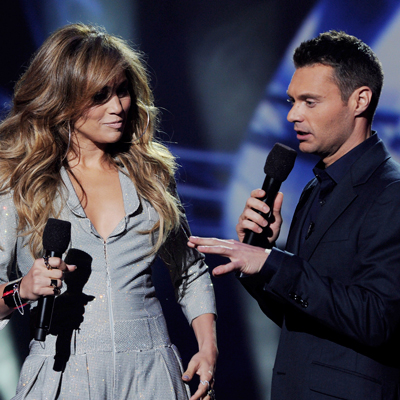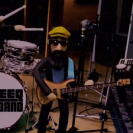We’ve avoided it as long as is possible: apparently you simply cannot have a music column at the start of the 21st century without at least mentioning American Idol. In true bazaar fashion, we will mention it here only to say goodbye, and little more. You’re not our target audience, we’re not yours—I think we both get it. When a complete juggernaut has been created out of little more than an arrogant Brit, a girl who used to dance with cartoon cats between cheerleading gigs for an LA basketball team, and an ex bass player so ridiculously unknown by the general public despite the fact that the band he was in was almost universally known (Simon, Paula, Randy, respectively) that you’d swear somebody was pulling your leg—you have to at least take notice. So, goodbye American Idol—it’s like we never really knew you!
Now that they have announced the end of the show after 15 seasons. Lets look back. First, based on the British show of similar format Pop Idol, the format had already proven it could be successful with large swaths of the general public. According to a recent Variety article, “the show is credited with launching the genre craze Stateside, leading to other singing competitions including The Voice, The Sing Off, the short-lived Rising Star, plus The X Factor and America’s Got Talent, both created by Cowell and inspired by the British versions.” With so many offshoots inspired by the success of this show you have to give them credit for reach if nothing else. The list goes on: So You Think You Can Dance, American’s Got Talent, The Voice, X-Factor, You’re a Star, Nashville Star, CMT Superstar, Duets, The Glee Project, The Sing-Off …And that’s before we even get into the numerous other completion format shows from Survivor to Flavor of Love that were green-lighted seemingly solely by virtue of the broad market that had now been proved out for such shows.
The general problem with American Idol is evident to most of us: artists of the caliber we crave—of such originality and personal integrity as the artists of old—would not only never subject themselves to such a bizarre contest, but they also wouldn’t likely fare well. When you imagine some of the greatest musical artists of all time they are likely too specific to do well in this format: their voice is too raspy, their range too small, perhaps their original track was simply not ready for prime time in the same way all these covers are. So what does it mean that the show was so successful?
Let’s be real, the show was canceled because viewers went away. But why? Simply put—the show grew stale; even by the standards of the shows own fans. It is notable then in their waning years, their quest to stay relevant has seen the judging panel shift as much as the contestants themselves—as much as they were judging the contestants, in the end, viewers were judging as well and voting with their remote controls. Still, there is something to be said for the sheer numbers of units sold alone.
Here are the artists they have created though and the track record is serious, these artists have cumulatively sold millions and millions of records, even before considering their compilation and other miscellaneous records: Carrie Underwood, Jennifer Hudson, Jordin Sparks, Katharine McPhee, Chris Daughtry, Clay Aiken, Ruben Studdard, Fantasia Barrino, Phillip Phillips and Adam Lambert. Holy smokes—that is a lot of records sold, at a time when nobody is buying records.
And what of the show itself? What say we use the shows own metric to determine if it should stay on or not? Sadly, in the immortal and often repeated words of OG judge Randy Jackson—“I’m not feeling it dog!” Take a bow, say your goodnights. I promise we will find good new music without you. And though your one-dimensional-popularity-contest as metric of what is subjectively good is a shtick we are not likely to lose soon, your departure will certainly pave the way for others shows of similar fashion.
You can find American Idol in syndication for the rest of your life. Try to avoid it if you can!









